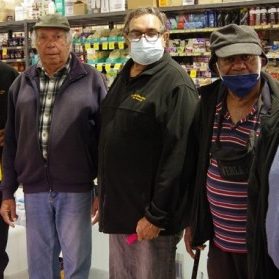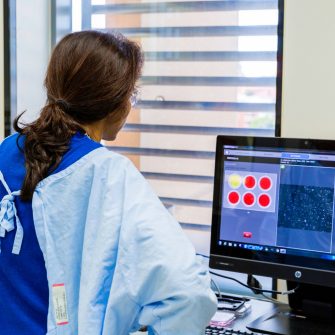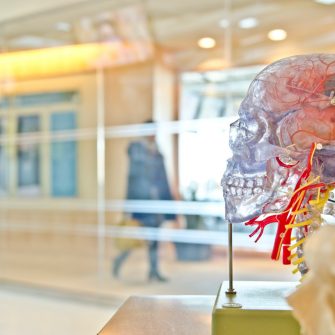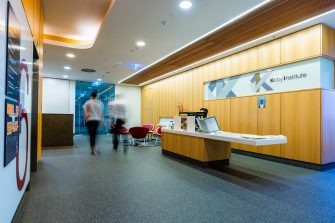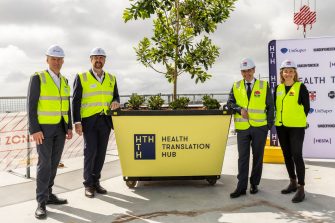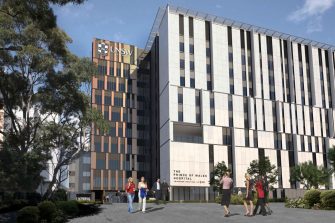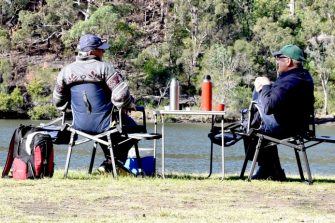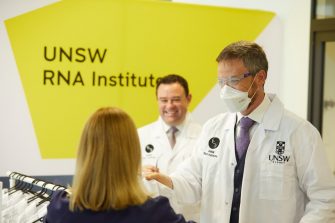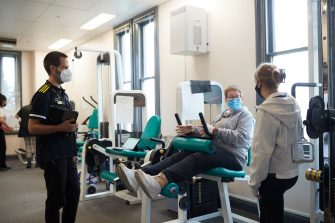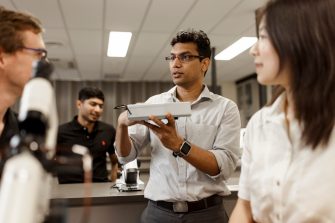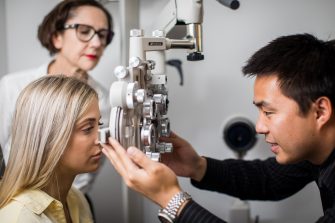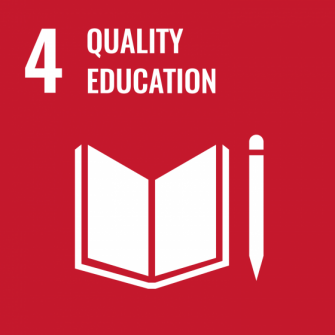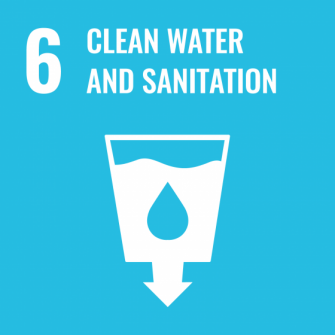SDG 3: Good Health & Wellbeing



Our work
World Mental Health Day 2024
At UNSW, we believe universities have a responsibility to not only support our students and staff, but drive innovations in health and wellbeing that help people around the world. Founded by the World Federation for Mental Health in 1992, World Mental Health Day is observed annually to raise awareness and promote positive change in mental health.
Green spaces on campus
UNSW has more than 120,000 square metres of landscaped gardens and areas and almost three-quarters of this area in sporting fields, including the Village Green Precinct which recently underwent a $40m redevelopment with installation of a new 16 million-litre below ground stormwater infiltration tank providing a sustainable water source on campus.
We are the proud caretakers of over 1200 trees on the Kensington campus and our trees are managed through a tree database system and an interactive tree plan of the campus.
There is a growing body of evidence that even an outlook on trees and other greenspace can significantly improve mood and has even been shown to accelerate recovery of people in hospitals. UNSW welcomes visitors to enjoy the benefits of the green spaces on campus all year round, free of charge.
Centres, institutes and partnerships
Community wellbeing
Michael Kidd | UNSW and the Future of Australian Health Care
What would a future with better more equitable healthcare look like? Professor Michael Kidd AO explores the pivotal role of UNSW in shaping the future of Australian health care - looking at the University's innovative research, cutting-edge technologies, and commitment to addressing the nation's most pressing health challenges.
Through real-world examples and forward-thinking strategies, Professor Kidd paints a vision of a future where Australian health care is more accessible, efficient, and equitable, driven by the pioneering efforts of institutions like UNSW.
Adam Bayes on Mind-Altering Mental Health
Adam Bayes is a leader in the mental health field, working as a clinical academic psychologist at UNSW and a senior research fellow at the Black Dog Institute specialising in mood disorders including depressive and bipolar disorders.
In this Sydney Writers' Festival podcast, Adam shares his cutting-edge research and clinical experience such as using ketamine to treat severe and treatment-resistant depression, a new development with promising results.
SDGs x Stress Less Week 2023
UNSW students were treated to some well deserved fun and relaxation at Stress Less Week in 2023, all while learning more about the SDGs.
Stress Less Week encourages students to prioritise mental health and wellbeing, and is a week of activities, workshops and freebies each term.
SEXtember 2024
UNSW’s annual sexual health and relationships festival, SEXtember, is an opportunity to break down taboos around sex and sexuality, promote healthy relationships and encourage sex-positive conversations in the University community. The festival is run by UNSW's Health Promotions Unit and Safer Communities.
The 2024 program included a webinar with Matt Brown, TEDx speaker and author of She Is Not Your Rehab, on tackling gendered-based violence through a mental health lens, a workshop on how to be an active bystander, an online Q&A with relationship and sex ed expert Georgia Grace, and free STI testing for the UNSW community.
David Cooper Lecture | Julia Gillard in conversation with Tegan Taylor
COVID-19 has posed particular challenges for women, and had significant impacts on mental health. Former Prime Minister Julia Gillard joined journalist Tegan Taylor for an evening of conversation exploring how to leverage science and make advances in health available to everyone.
RNA Institute
Following a $96 million investment from the state government, the first-of-its-kind RNA pilot manufacturing facility is strengthening Australia's RNA capability.
Population ageing
Population ageing is one of humanity’s most pressing challenges. The UNSW Ageing Futures Institute will conduct research and translate it into policy and practical outcomes, to enable optimal ageing for individuals and society.
Cellular Genomics
Cellular Genomics is the next great revolution in medicine. The UNSW Cellular Genomics Futures Institute will invent technologies to decode individual cell DNA, chromatin, RNA, and protein outputs that will be used for precise diagnosis and precision treatment of human disease.
COVID-19 modelling to assist future pandemic responses
Over 70 people from the School of Population Health, including staff & at least 30 students contributed their time and skills to the COVID response in Sydney, across NSW, nationally & internationally. Responses have included data modelling for both State and Federal Governments in addition to regional modelling for the World Health Organization Office of the Western Pacific. School experts have contributed to multiple COVID response committees and in the media.
Supporting health systems and policies in the Asia Pacific
UNSW Sydney is the lead academic institute to the Asia Pacific Observatory (APO) on Health Systems and Policies, and the UNSW School of Population Health is one of five universities across the Asia-Pacific region that provides policy research inputs to the APO. The School has provided evidence-based policy advice to Pacific leaders to address pertinent policy challenges including the ageing Pacific population, the use of digital health for universal health coverage goals, and health system governance and financing reform.




